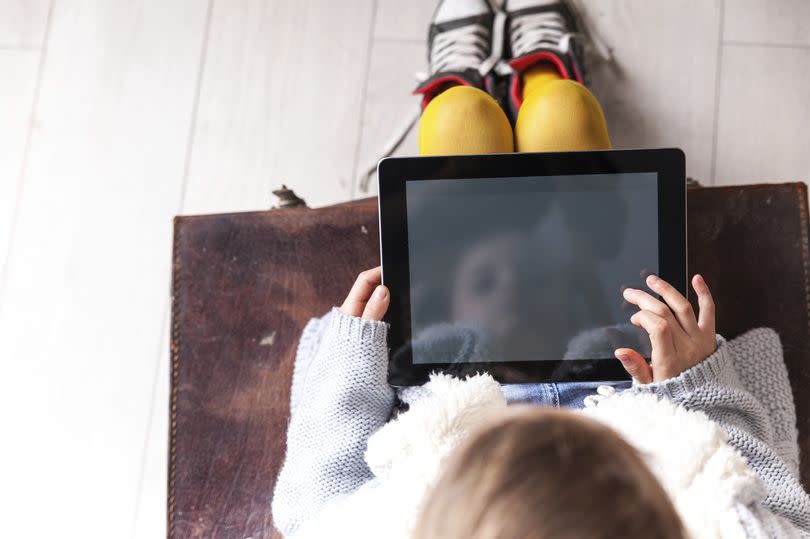Health expert shares how many hours screen time children can have depending on age

For parents, the struggle to keep their children away from screens is a constant battle. Regardless of how many art supplies or footballs you buy for your child, they always seem to be drawn towards the TV or tablet. The Centers for Disease Control and Prevention (CDC) reports that children as young as eight are spending six hours a day glued to a screen - and this doesn't include time spent on a computer for schoolwork.
OSF HealthCare paediatrician, Dr Samina Yousuf, said: "While TVs have been a fixture in homes for many years, the issue of screen time is a relatively new area of concern since smartphones haven't been around very long. Studies are showing links between excessive screen time and various physical and mental health issues in children, such as obesity, depression, behavioural issues, and anxiety. It also hinders them from getting the recommended amount of sleep each night, which harms them physically and also impacts their performance in the classroom.
"And then when they come home from school, it cuts into the time they should be devoting to homework." Dr Yousuf warns that too much screen time can also negatively impact your child's development of social skills, adding: "Impatience in real-world interactions is one of the biggest results of excessive screen time."
A concerned parent explained: "You don't have to be patient with a screen. It's instant gratification. But you do need patience when you're talking to someone in person. So, it's important that children learn to wait, listen and respond. This will not only help them when communicating with other kids but also when playing together since taking turns with toys is so important."
The careful nurturing of healthy relationships and friendships as they mature is paramount, she stated adding: "All of this lays the foundation for developing healthy relationships and friendships as they grow up." Parents are encouraged to regulate their child's screen time, setting boundaries on what they watch and how long they spend on their devices. Suggestions include introducing educational games for a mixture of entertainment and learning.
One parent has admitted to allowing their three-year-old child four to six hours of screen time daily. On Reddit, they said: "I would say four to six hours for my three-year-old, which is too much I know. It was probably two to four before his little brother came along." While another confessed: "At least three hours. About 45 mins in the morning, 45 mins in the afternoon, 30 minutes before bed and any time we're in the car he gets my phone to watch YouTube. I'm a stay-at-home-mum and I love my son, but I cannot play with him for 12 hours/day."
A third parent shared their approach: "My philosophy is to think what the screen time is replacing. If it's replacing an hour of screaming to go down for a nap or being grumpy because mummy is working from home and can't give him 24/7 attention or you need to do laundry because nobody in the house has clean clothes then by all means turn that cartoon on for him."
Dr Yousuf said paediatricians generally recommend the following guidelines:
Under 2 years old: Zero screen time, except for video chatting with family or friends
2-5 years old: No more than one hour per day co-viewing with a parent or sibling
5-17 years old: Generally no more than two hours per day, except for homework
Additionally, Dr Yousuf explained: "Younger children don't relate to what they see on a screen the same as real life. Subliminal messages that we send during in-person conversations don't come across the same on a screen." He also emphasised the importance of interactive play: "When you're playing with a young child, you're teaching them how to interact with their environment. Studies show that the more interactive you can be with them, the better off they'll be because they're using more of their senses, such as listening, touching and smelling."

 Yahoo News
Yahoo News 
